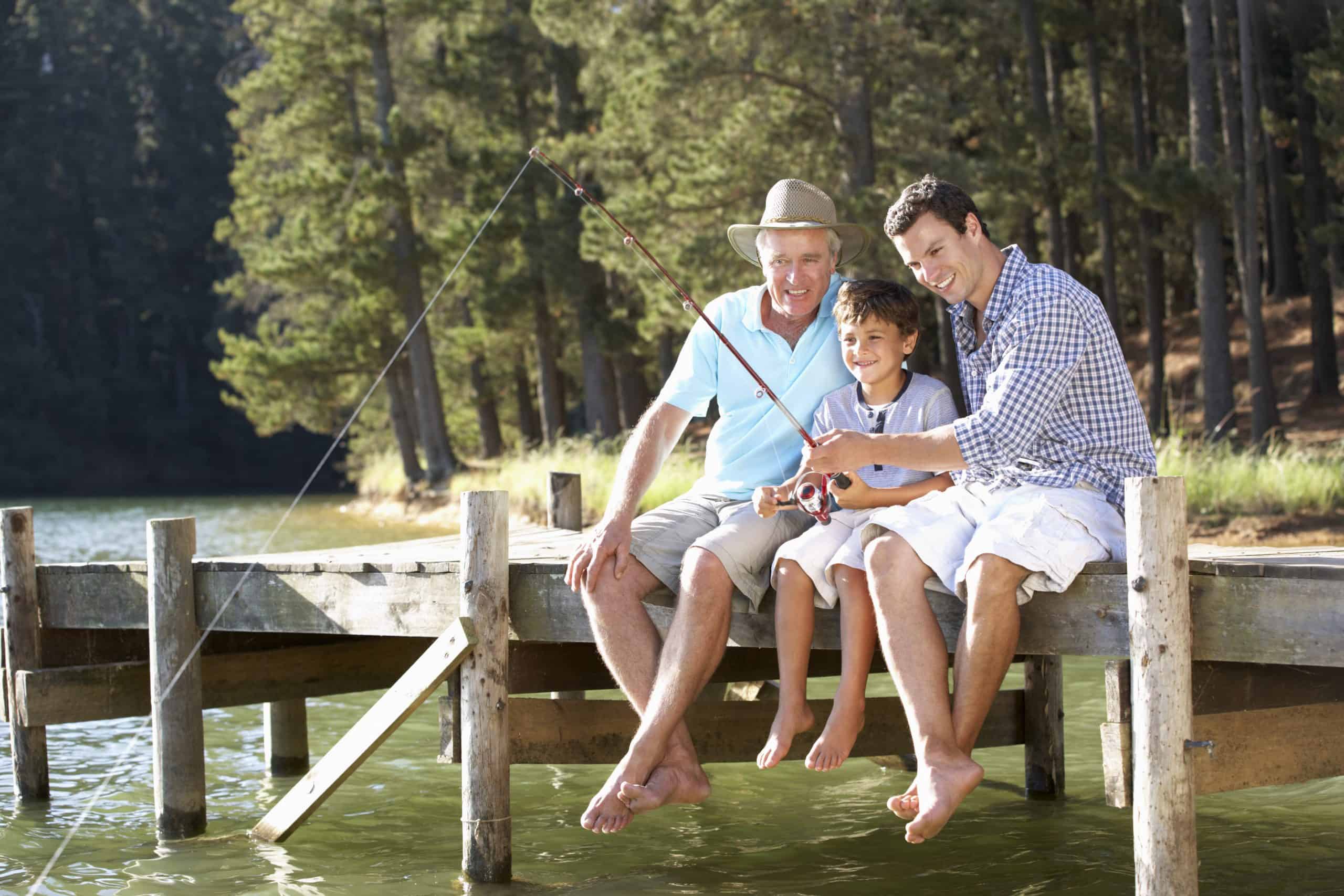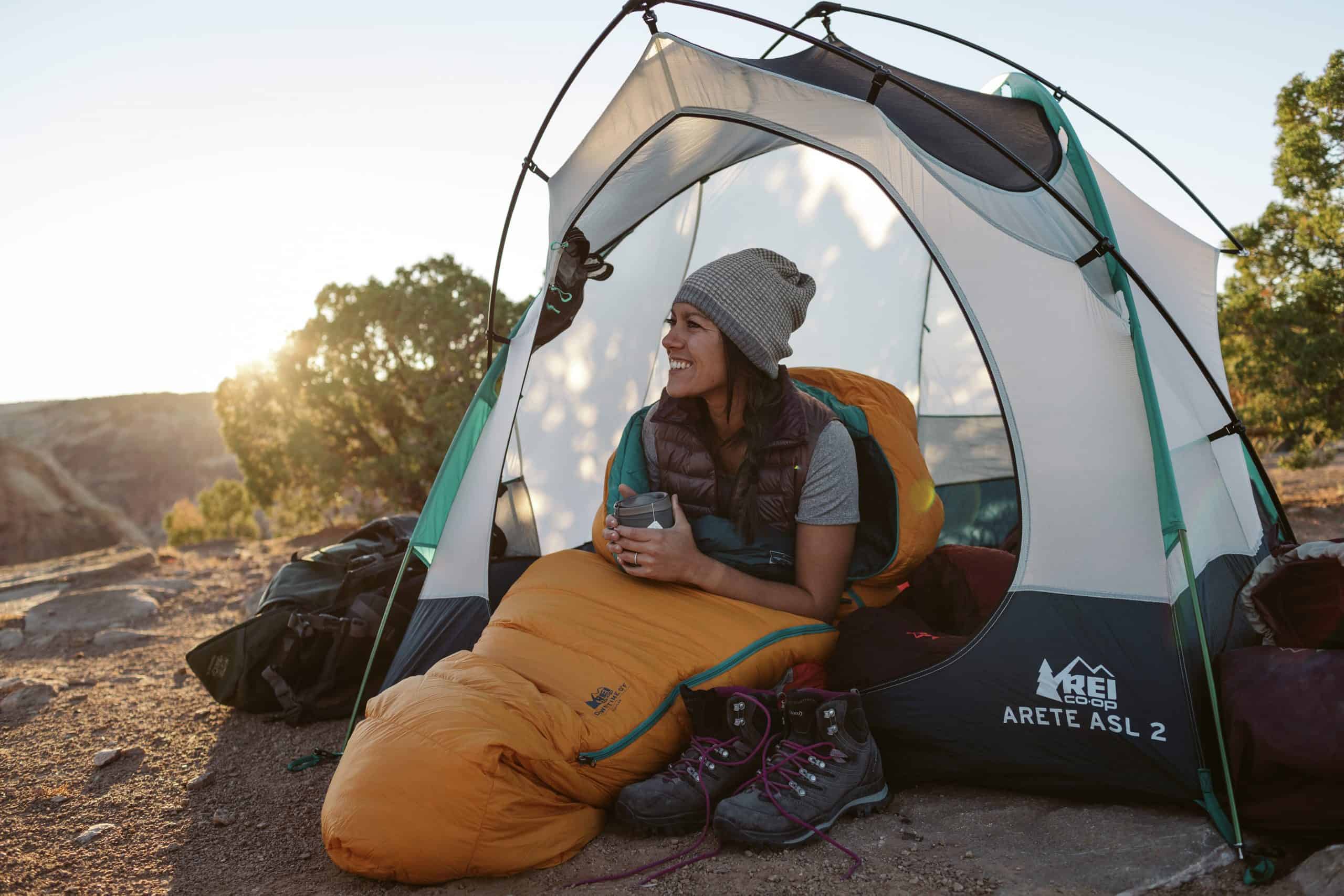For adventure lovers, the changing of the season marks the beginning of summer outdoor recreation. Whether you’re an avid recreationalist or just starting out, you don’t have to pay full price for outdoor gear to enjoy the great outdoors.
You have many ways to acquire used outdoor gear that can support you through any terrain or waterway. Plus, not paying full price is a great step toward making summer recreation more feasible. If you have a family or partner you’re outfitting, buying all your gear used may be the same price as buying new for one person.

Photo: Deposit Photos
Before we get into all the used gear outlets you can peruse, let’s first cover some basics of what you should consider before buying used outdoor gear.
Pros and cons of buying used outdoor gear
The biggest benefit to buying used is saving money. It also lets you purchase name brand gear that may otherwise be out of your price range. No matter the brand, some outdoor recreation requires expensive gear, such as a kayak or ATV. Buying used will help offset the upfront costs.
The production of new outdoor gear carries a heavy carbon footprint. Buying new-to-you is one of the most sustainable ways to recreate by keeping usable equipment out of landfills.
Thrifty recreationalists do need to be careful about which items they purchase pre-owned. Any gear that is designed for your personal safety should never be bought used. If you are a rock climber, rope, carabiners, harnesses and any other gear that helps you climb safely should be bought new.
The same is true for helmets for all kinds of recreation. You won’t know for certain from looking at the item whether it’s safe or not. The outer shell may be in great shape, but the inner shell could be damaged.
Other items, such as footwear, are more subjective. You could argue that a lightly trekked hiking shoe is broken in for you. Or you could view it as someone’s foot is already imprinted in the shoe, and you won’t be able to mold the boot to your own foot.
When outfitting for your summer adventures, you don’t have to buy all new or all used. Your gear list may have a combination of new and used items. You will still reap the financial benefits, while staying as safe as possible.
What to do before you buy used outdoor gear

Photo: Deposit Photos
Try the activity first
It’s easy to get caught up in the excitement of your first fishing trip or backpacking adventure before you know whether you actually like doing those things. Make sure you try the outdoor activity first before you buy all the gear, used or new.
The best way to try before you buy is to find a friend who is experienced in the outdoor pursuit you’re longing to try. Ask if they’ll take you out for the day. I’ve wanted to try paddleboarding for years. Instead of impulsively buying my own board, I found a friend who owns a paddleboard set. We’ve already talked about going out this summer.
Another option is finding a rental or guided experience for cheap. You’ll get to ask an expert about the gear and what they recommend for recreationalists of all levels. Search an online deals site, like Groupon, for discounts on outdoor activities and rentals. Usually, you can find the best deals during weekdays when there are fewer bookings.
Do your homework
Spend some time researching the features you need or want your outdoor gear to have. A lot of these considerations depend on where you plan on getting out and exploring with new-to-you equipment. If you are kayaking in lakes, you don’t need a whitewater kayak with a dry suit and spray skirt. If you plan on hitting mountain trails, you’ll need a bike, cycling shoes and protective gear that can handle the terrain.
If you’re looking for expert advice, find local outdoor groups. Many of these groups have forums where you can ask questions and get advice from people in your area. They can give you tips for how to spot good-quality used outdoor gear and where to buy it cheap. Plus, you can start gathering a list of all the best places to enjoy the outdoors in your area.
Chances are these people also get together to hike, kayak, trail ride, etc. Once you get your gear, you can join in on the fun and make new friends. Look for shared interest groups online through Meetup and Facebook.
Another resource I recommend is REI’s Expert Advice, which teaches you about outdoor recreation skills and safety tips, how to choose and maintain gear and trip preparation. Some articles are step-by-step guides and some have instructional videos. I learned how to tie down a kayak to the top of a car with this resource.
Make sure buying gear is the right choice for you
We all have big aspirations for our summertime activities. Yet, unless you have a plan or a group of friends to keep you accountable, you may not be using your gear as much as you’d like. Ask yourself, is this activity something you’ll do once a season, once a month or every week? Even cheap outdoor gear might not be worth the expense if you’re not going to use it regularly.
Another factor to consider is proximity. Does it take you two hours or 10 minutes to reach your favorite trail or body of water? This can be a good determining factor of whether you should buy gear and how much you’re willing to spend.
Where to buy used outdoor gear

Photo: Deposit Photos
You can buy used outdoor recreation gear from someone local or have it shipped to your home from an online retailer. Here are the sites I recommend for purchasing used outdoor gear.
Shop local marketplaces
You can find great prices on outdoor gear from a local seller who used an item once before giving up the sport or an avid adventurer with name brand gear who is upgrading to new equipment. Connect with local sellers online, then meet up to finish the transaction.
Facebook Marketplace: This is the first place I go when I’m looking to used camping gear, outdoor clothing or other new-to-me gear locally. The best part of Facebook Marketplace is you can negotiate the price and pick up your new gear the same day. It’s easy to pay cash or use a mobile payment service like Venmo.
OfferUp: This online marketplace is another great option for finding used gear near you. You can even download the OfferUp mobile app and receive notifications right to your device.
Before you buy used outdoor gear from an individual, do your due diligence to make sure you’re purchasing equipment that is safe and in good condition. Some gear listed by local sellers may be worn to the point of being unsafe, and the seller may have no idea how to evaluate the gear.
Here are some questions to ask the seller before meeting up to buy used outdoor gear:
- How long have they owned the equipment?
- Did they buy it new?
- How many times have they used it?
- Has it ever been repaired?
- Are all the parts original? If not, what has been replaced or added?
- Have you ever been in an accident with it or has the gear been dropped?
- How has it been stored (indoors, garage, outdoors, etc.)?
- Why are they getting rid of it?
If the answers to these questions are satisfactory, you may have just scored awesome gear for a cheap price. If the answers raise alarm bells or it seems the seller is withholding information, pass on the purchase and keep looking.
Shop online through web-based retailers
Online retailers stake their reputation on providing high-quality outdoor gear. While you may pay a higher price than you would from a local seller, the peace of mind may be a fair trade.
Geartrade: This online shop is for adventurers, retailers and manufacturers to sell their used, returned and repaired gear. Geartrade is a great place for you to find exactly what you’re looking for at a lower price than buying new.
Outdoors Gear: This family-owned business operates on a national scale. Outdoors Gear sells gently used outdoor gear that was retired from its rental program.
REI: The national retailer has its own used outdoor section online. If you are a member at REI, you can even trade in your old gear for an REI gift card and participate in the annual REI Garage Sale, which takes place in-store with discounts on used gear.
Shop consignment stores
If you live in an area with a lot of recreational opportunities, chances are you have consignment shops that specialize in outdoor gear. You might even get some good recommendations from the outdoor group you joined.
Alternative options to buying gear

Photo: REI
In the end, buying outdoor gear may not make a lot of sense for your lifestyle. Trying a new sport or only having time to get outdoors once or twice a summer may not prompt a purchase.
Another prohibitor to having your own gear is storage. If you live in an apartment or small home, where are you going to keep that paddleboard or mountain bike? Even smaller items like rock-climbing gear or a camping tent can take up a big portion of a small closet.
Consider the following alternatives to buying outdoor gear.
Borrow equipment
Borrowing outdoor gear is an option that should not be overlooked. Chances are your friends have outdoor equipment lying around their homes. Put a call out on social media for the gear you’re looking to borrow, whether that’s a hiking backpack, inflatable raft or fishing rod. In exchange, offer up something nice you can do for that person. Everyone appreciates a home-cooked meal, bottle of wine, yard work or car wash.
Borrowing gear is also a great way to try different brands, styles and features of equipment to figure out what you like best. If your lifestyle changes and you have more time or space for this type of recreation, you will know exactly what you want to buy.
Rent gear
Get all the equipment you’ll need for your next outdoor adventure for one price. Much like borrowing, renting gear is an ideal way to try different brands, styles and features of equipment without spending a ton of money.
I’ve also seen options where you can rent equipment for a whole season. You’ll have to determine if this is more cost effective than buying used gear.
Try the following resources for outdoor recreation gear rentals.
Local outdoor stores: Chances are your city has its own locally owned outdoor stores. Ask if they offer gear rentals.
Local colleges and universities: When I was a student, my college had an outdoor center with lots of rentals available. Google your local colleges and universities with the word “outdoor gear rental” and see what opportunities are available.
Arrive Outdoors: This online outdoor gear rental shop specializes in snow sports, camping and hiking gear for adults and kids. Arrive Outdoors will deliver gear anywhere in the contiguous United States. Choose your delivery date and return date for your trip. Your rental includes a free return label.
Outdoor Geeks: This online retailer boasts the largest collection of camping gear in the world with individual items and gear packages. Outdoor Geeks even has high-end glamping rentals. You can have equipment shipped to you anywhere in the U.S.
REI Rentals: The national retailer has rentals available in 28 states and counting. If you live in one of these states, you’ll find a great selection of outdoor packages through REI Rentals for the type of activity you’re interested in.
Once you’ve found your gear for cheap, you can start enjoying the great outdoors. Happy adventuring!
If you liked this article, you might also like:
